We may earn revenue from the products available on this page and participate in affiliate programs. Learn More ›
Cohabitating with unwelcome critters is no one’s idea of fun. Armed with a few basic tools and a bit of knowledge, however, you can create a pest-free environment in no time. While professional pest-control services are certainly an option, they can be expensive and may involve the use of chemicals that can pose health risks to homeowners. Fortunately, these DIY methods can help you reclaim your home or garden from pesky invaders and restore your peace of mind.
1. Ward Off Mosquitoes With Wine Bottles
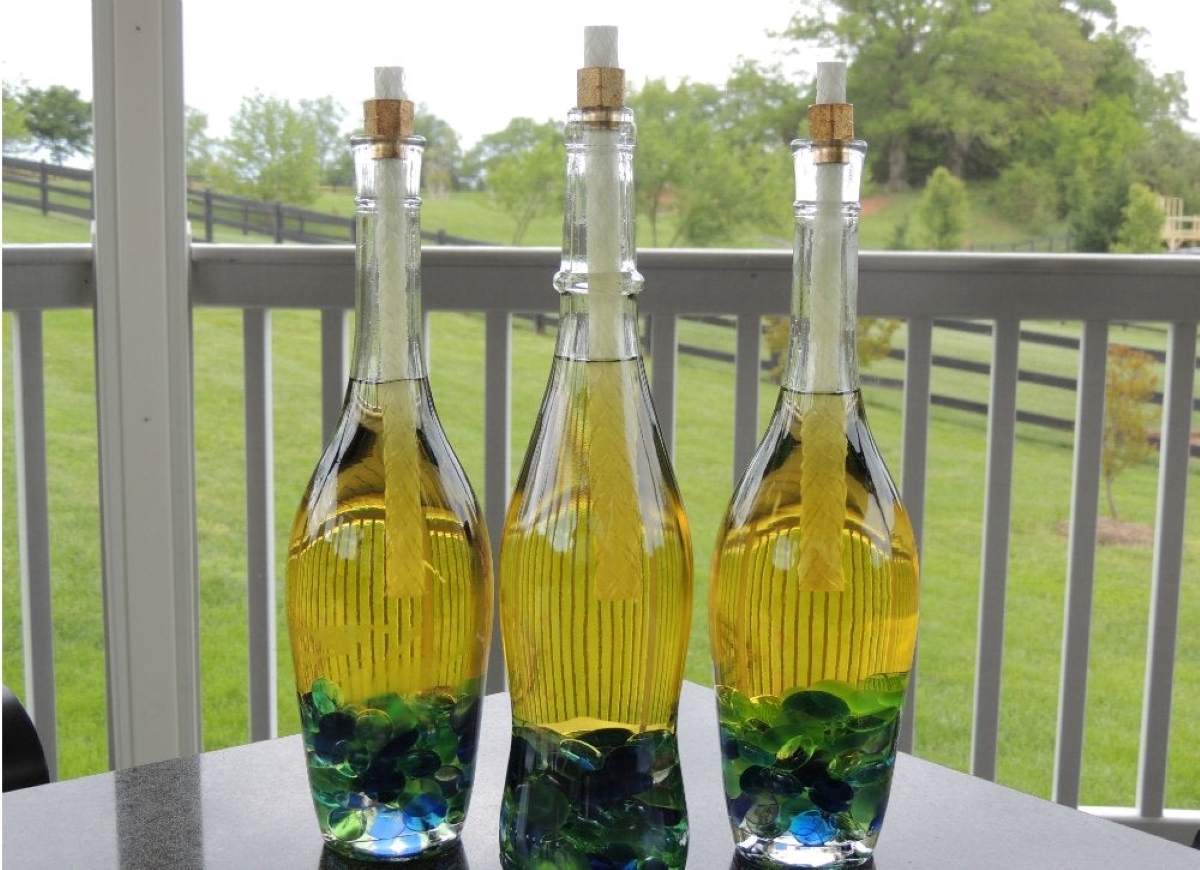
Keep mosquitoes and biting flies from crashing your patio party with wine bottles. Fill a few empty glass bottles one- to two-thirds full with sand, small stones, or marbles. Then pour citronella-scented lamp oil in up to the neck of each bottle—this will give you several hours of burn time. Drill a hole through each cork and thread a piece of cotton rope through each hole, long enough to reach the sand or stones at the bottom with an inch exposed above the cork. As soon as the wick soaks up the oil, light and enjoy a bug-free backyard.
RELATED: 13 Time-Tested Tricks for a Bug-Free Backyard
2. March Ants Out of the House With Apple Cider Vinegar
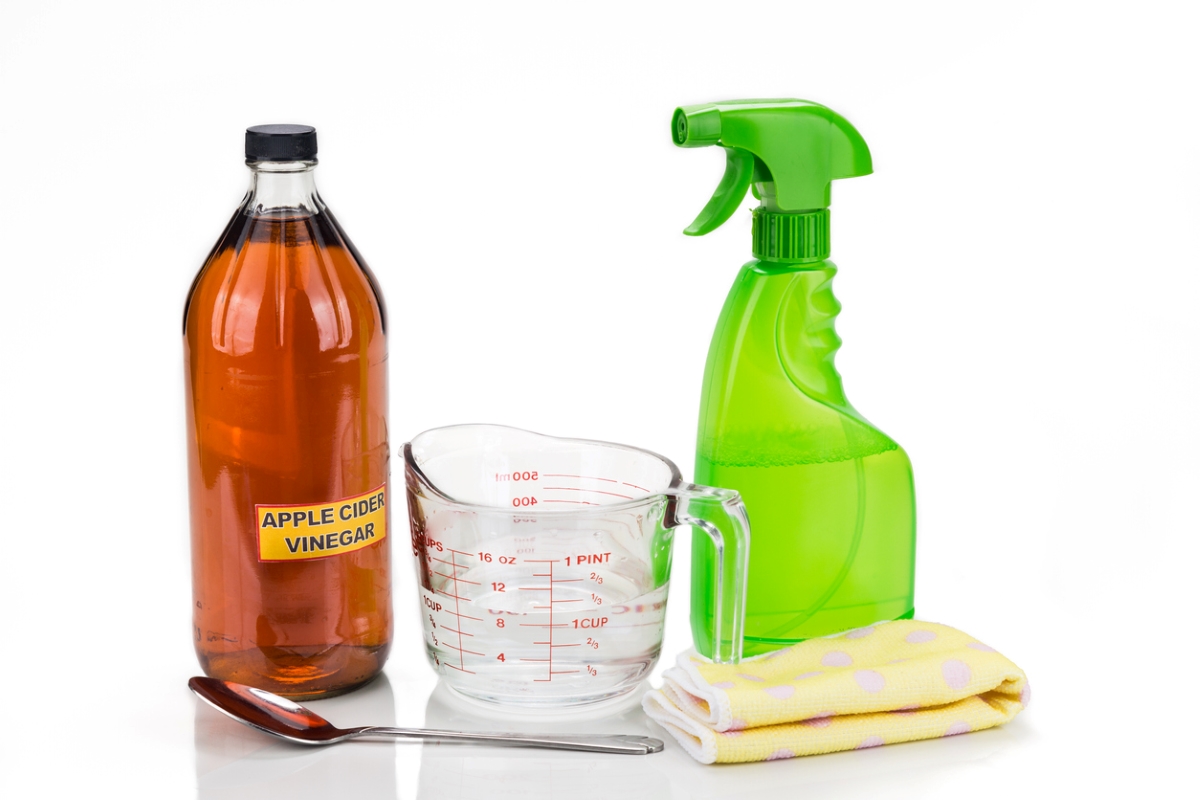
Ants are as big a nuisance inside the house as they are at a picnic. To keep them away from your food prep surfaces—and everywhere else, for that matter—deter them by washing countertops, floors, walls, and other surfaces with a mixture of equal parts apple cider vinegar and water.
RELATED: 15 Plants to Grow for a Pest-Proof Yard
3. Block Out Ants With Borax
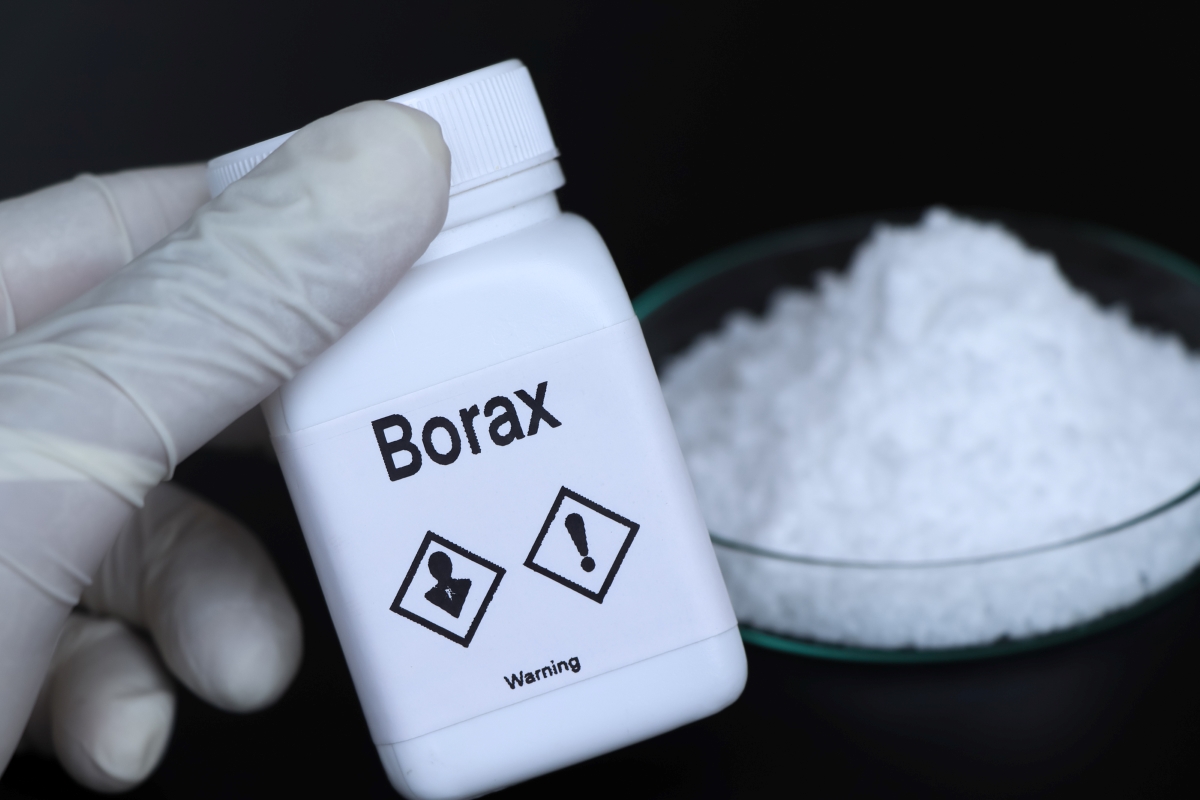
Another method for turning ants away from your picnicking zones involves mixing 1 cup borax with one-half cup flour. Carefully sprinkle the clumped solution around the foundation of your house. Note: Borax can be toxic if ingested by people or pets, so don’t use this around the house if you have young children or small animals.
RELATED: Solved! What Attracts Ants to Your Home
4. Say Goodbye to Slugs With This DIY Beer Trap
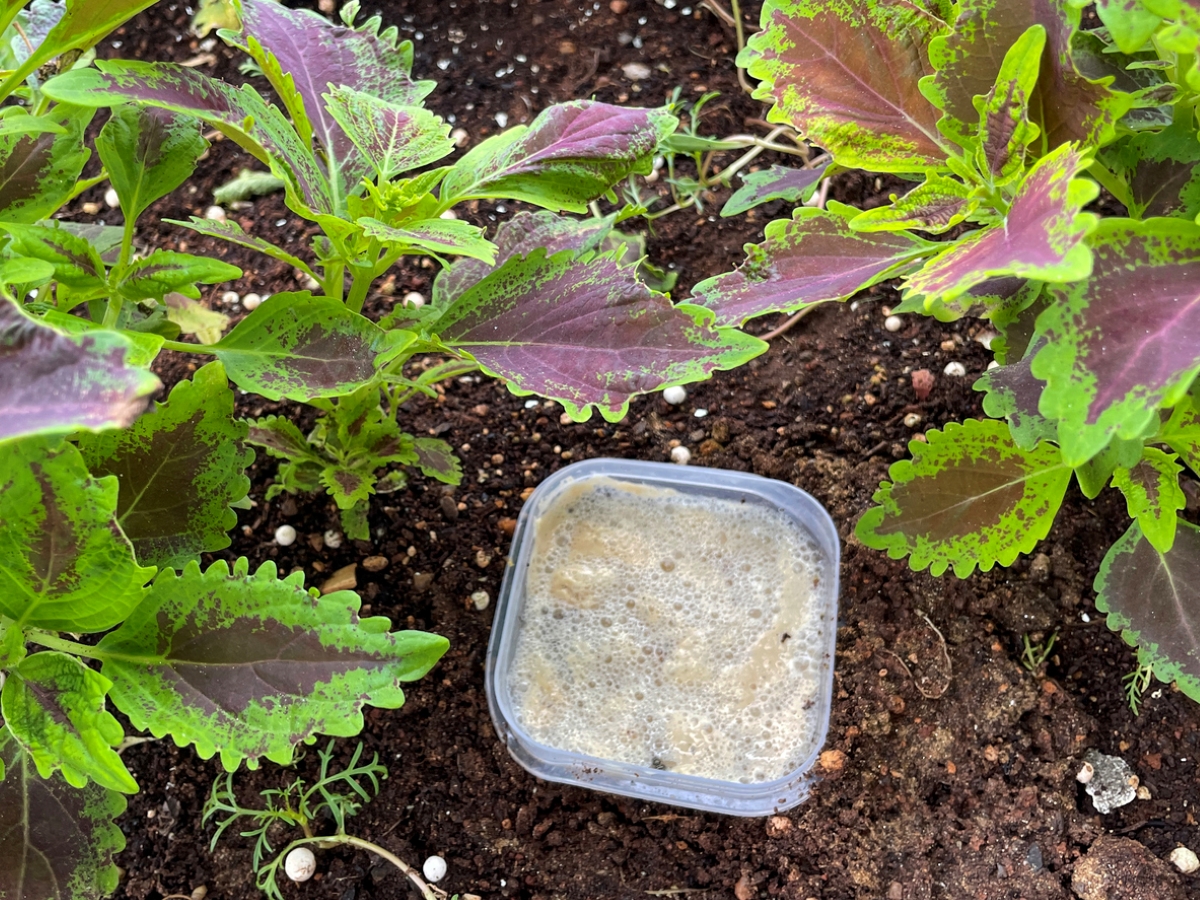
It might seem like a shame to waste a good brewski, but beer will help rid your garden of slugs practically overnight. Take a wide-mouthed plastic or glass container, then bury it about two-thirds in the ground and fill it up about a quarter of the way with beer. The fermented yeast in the drink will attract slugs, causing them to fall in and drown. Empty the container every day or so, and refresh the beer until your slug problems are a thing of the past.
RELATED: The Best Slug Killers
5. Remove Pests With Rubbing Alcohol and Soap
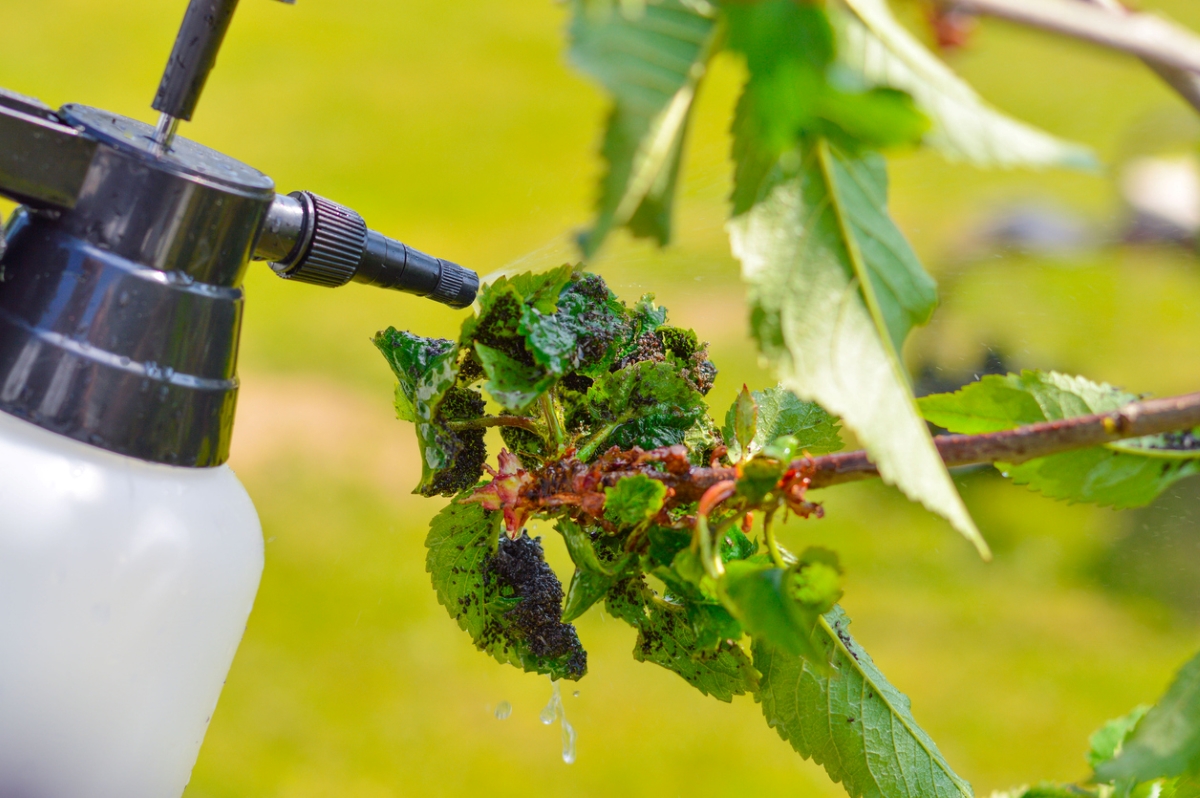
A mixture of one-half cup rubbing alcohol and 1 quart of liquid soap can make an effective pest-control spray to get rid of whiteflies, aphids, mealy bugs, scale insects, and thrips. Fill a spray bottle with the solution, then shake and spritz directly on your plants. Let sit for 20 minutes, and then rinse the plant thoroughly to avoid damaging the leaves. But save this garden maintenance until dusk; in direct sunlight, this solution can burn the leaves. Spray every 3 days for 2 weeks, until the bugs are gone.
RELATED: 12 of the Most Common Garden Pests—Including 8 of the Most Destructive Bugs
6. Nix Flies With This Natural Pest Repellent
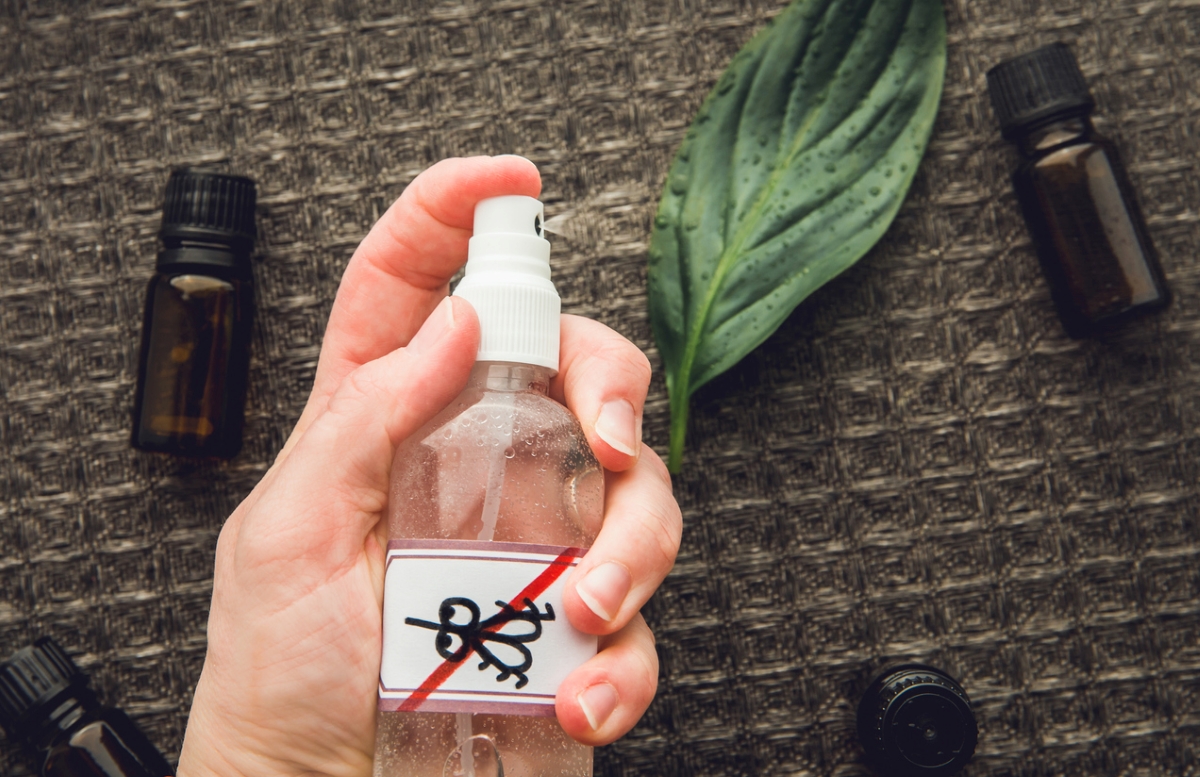
Prevent biting flies, horseflies, and mosquitoes from piercing your skin with natural repellents derived from plant-based ingredients. Natural pesticides are generally considered safe for human use and do not pose significant health risks, unlike other chemical repellents. For example, lemongrass contains citronella, so mash up the inner leaves and rub the juice on your skin. Or, try making your own skin-safe bug spray: Fill a spray bottle with 2 ounces of witch hazel, 2 ounces of distilled water, and 10-15 drops of essential oil (think citronella, lavender, and lemongrass). Mix well and spray on skin, making sure to shield your eyes. We recommend doing a patch test on a small area of your skin to check for any potential allergic reactions.
RELATED: How to Get Rid of Flies Outside
7. Take Out Beetles With Tomato Leaves
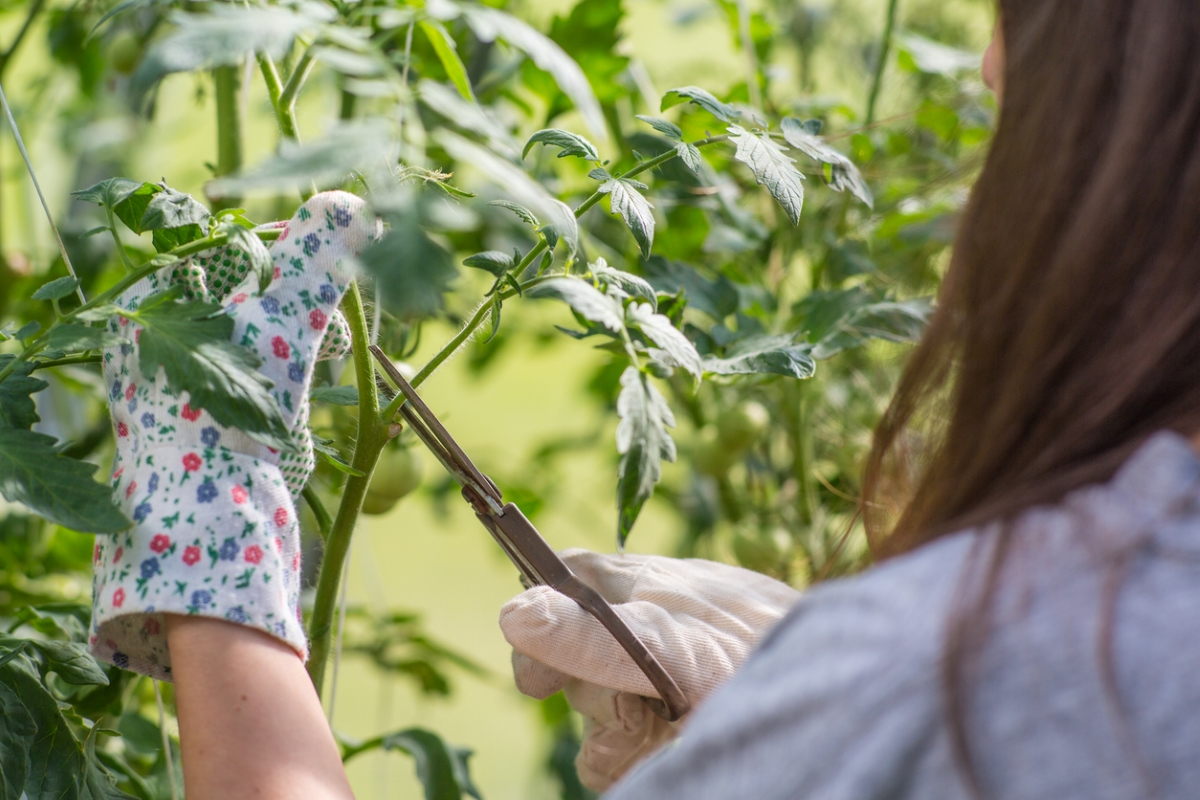
If beetles are giving you trouble in the garden, whip up this recipe to protect your plants: Soak 2 cups of chopped tomato leaves in a pint of water overnight. Strain to remove the leaves, then add another pint of water and 1/4 teaspoon of liquid soap. Spray foliage and soil with this diluted mixture as needed. This solution also works against earworms and maggots.
RELATED: 15 Natural Pest-Control Strategies for Your Yard and Garden
8. Keep Your Produce Pest-Free With Molasses
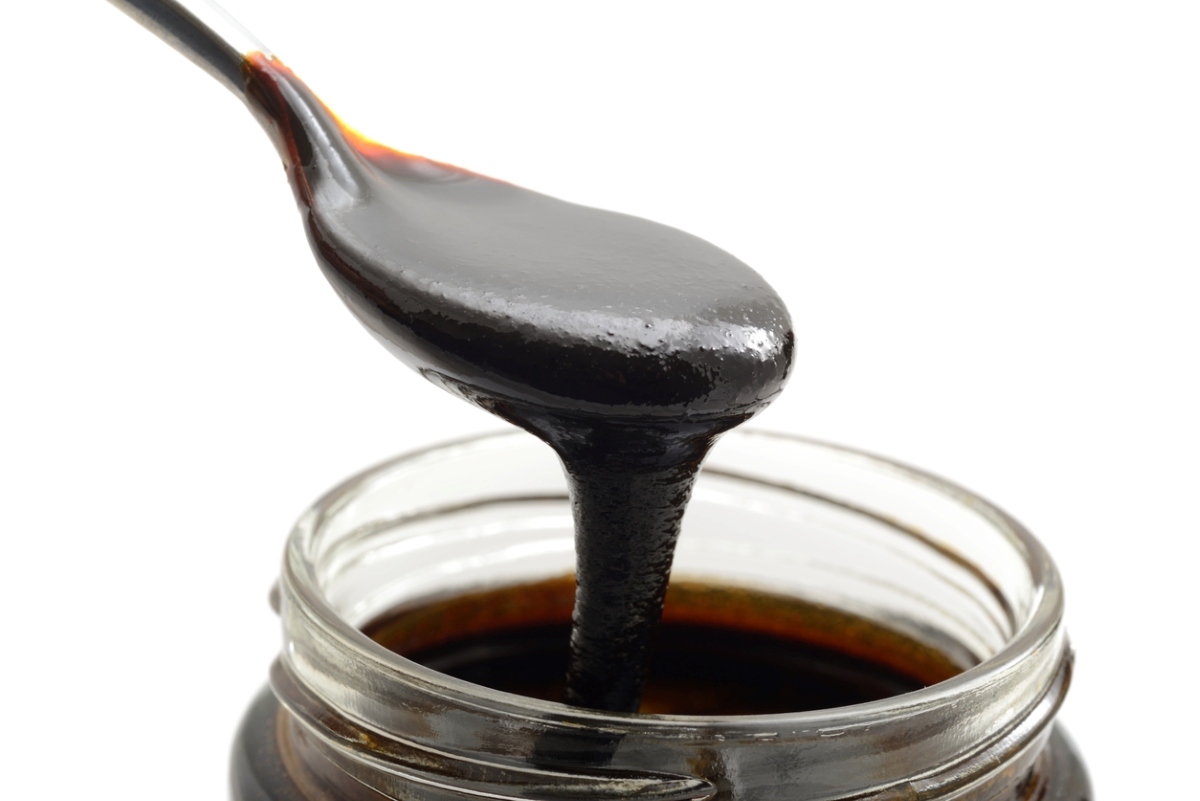
Nematodes—tiny parasitic worms that live in the soil—as well as caterpillars and grasshoppers can wreak havoc on your vegetable garden. But molasses “tea” can be the natural solution for helping preserve your produce. To make it, dissolve 3 tablespoons of molasses in 4 cups of warm water in a spray bottle, and then shake well. Spray your plants and the ground around them every few days to keep pests at bay.
RELATED: The 3 Best DIY Pest Control Subscription Services in America
9. Fight Fruit Flies With Apple Cider Vinegar
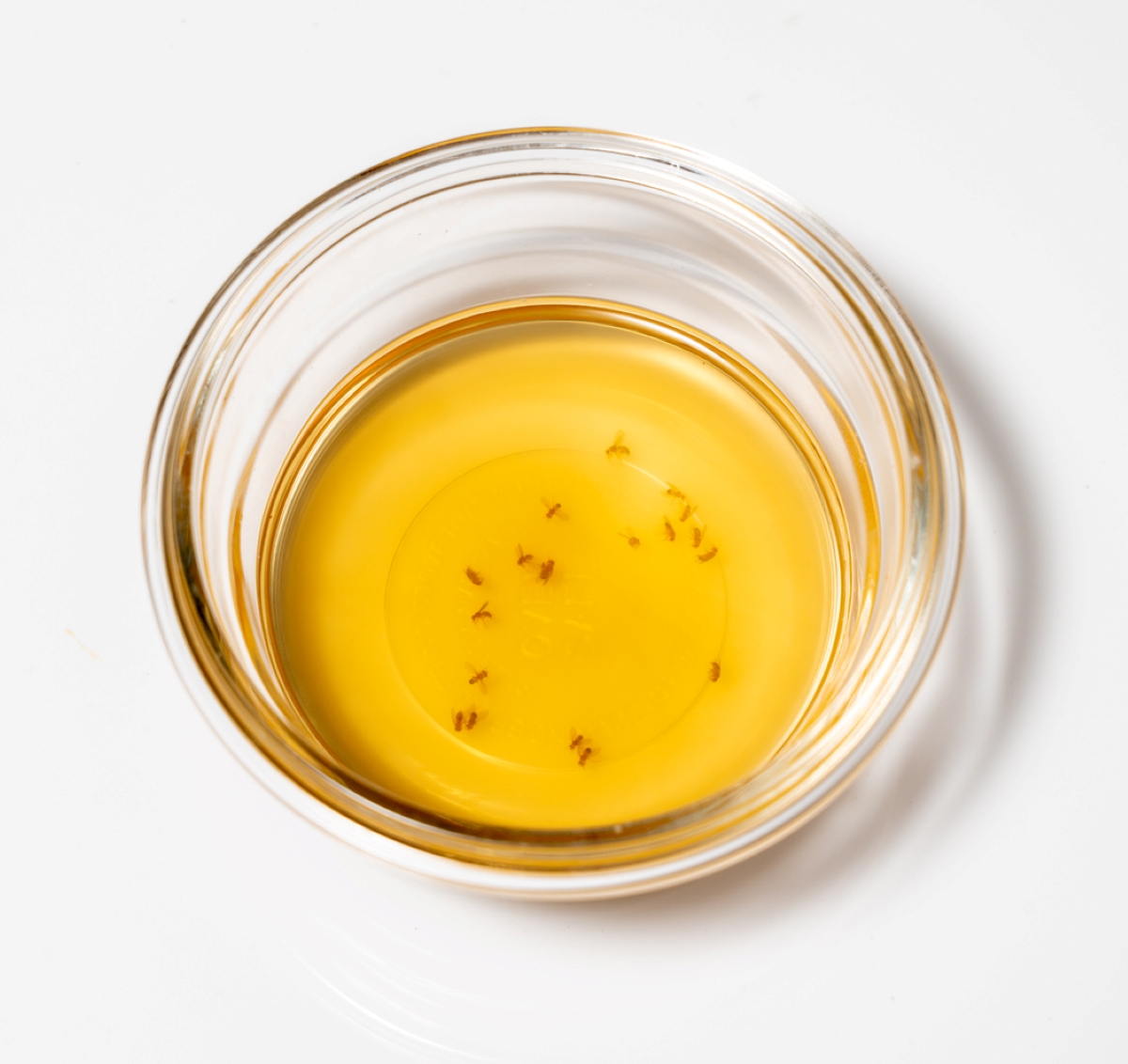
You can have your bananas and eat them, too, without fighting off fruit flies in your kitchen. Craft a simple homemade trap by pouring a thin layer of apple cider vinegar and a squirt of liquid dish soap in the bottom of a plastic jar or butter dish. Cover the container with plastic wrap and poke a few small holes in the top so you can lure the flies in without their being able to slip back out.
RELATED: The Best Fruit Fly Traps for DIY Pest Control
10. Ward Off Biting Pests With Witch Hazel and Lavender
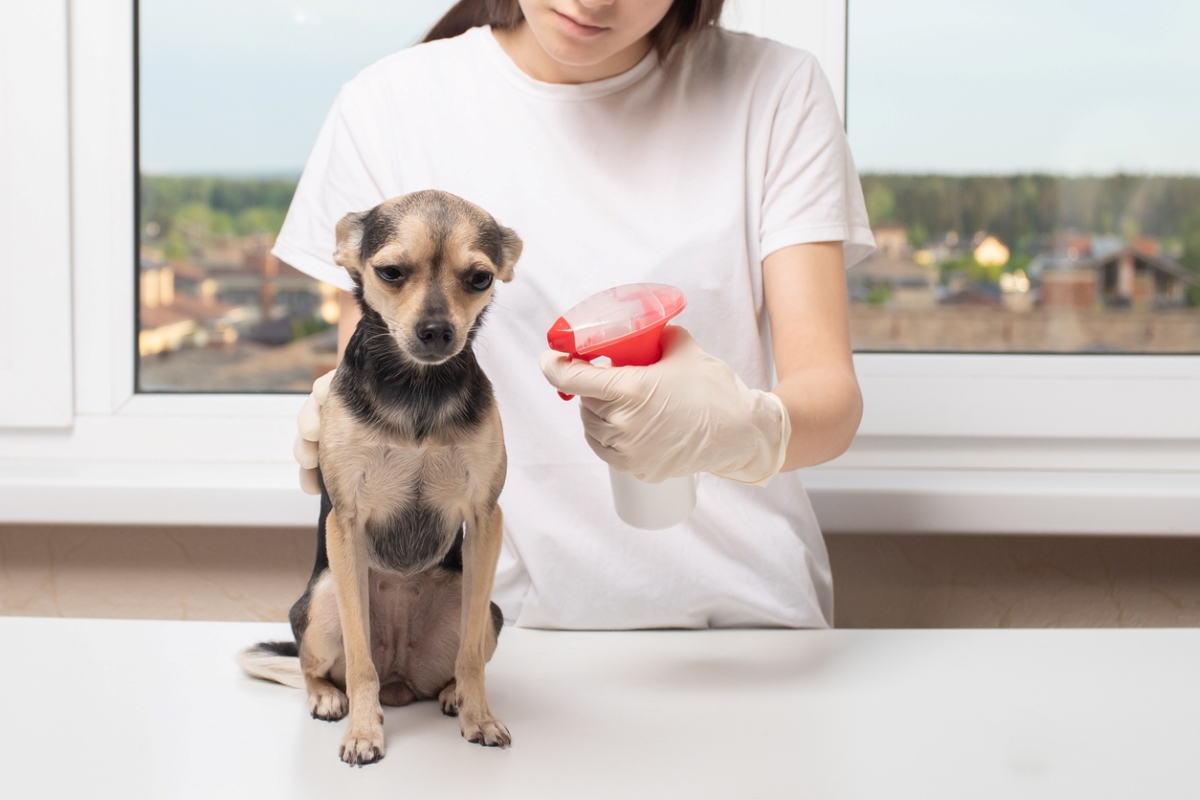
Save your pet from endless itching with a little DIY repellent. Simmer 2 cups of water, a sliced lemon, and fresh lavender sprigs in a saucepan for 30 minutes. Strain out and discard the larger pieces, then add 2 tablespoons of alcohol-free witch hazel to the cooled concoction. Transfer it to a spray bottle so you can mist and rub the solution into Fido’s fur before he heads outdoors.
RELATED: How to Get Rid of Flies Outside
11. Trap Wasps With Sweet or Greasy Bait
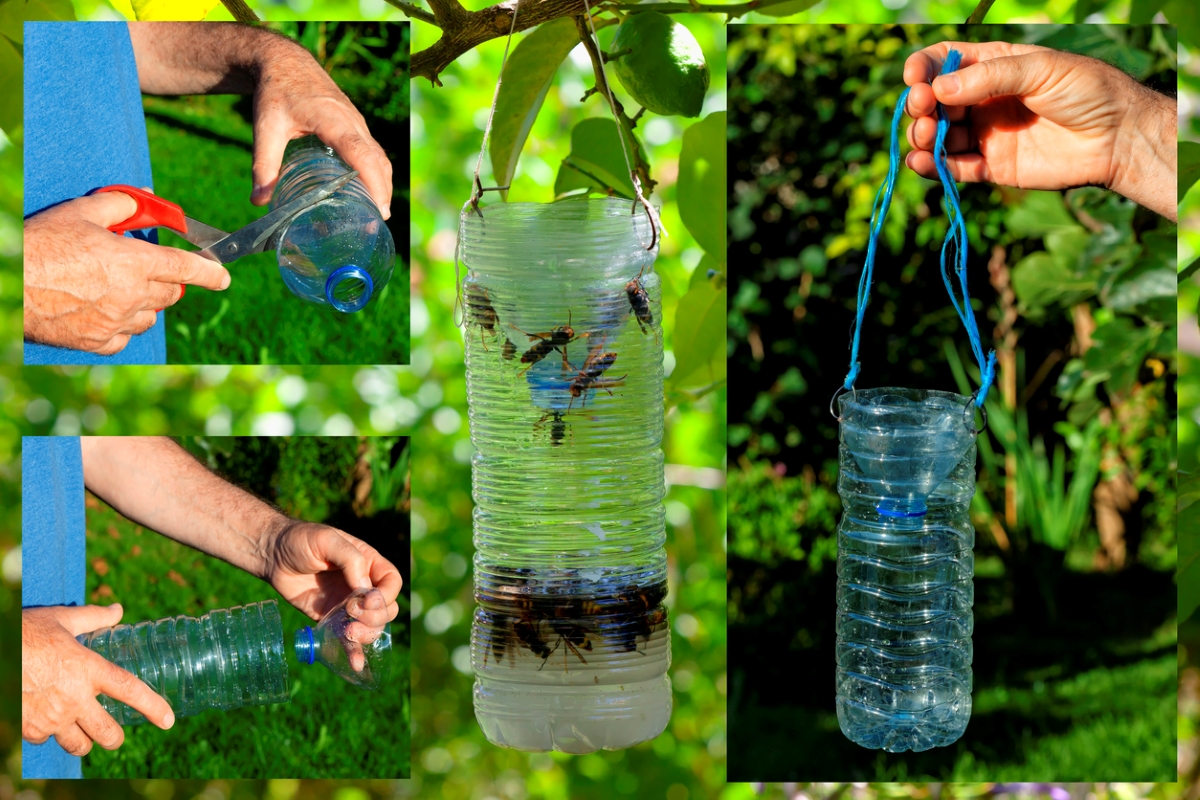
Save your friends and family from stings this season with a homemade wasp trap. Cut a recycled water bottle in half. Invert the top (the bottleneck) and slip it inside the bottom half like a funnel, and tape the pieces together. Then fill with a seasonally appropriate bait: In spring, wasps go for grease from cooked meat with water and a little dish soap, but in summer they’re more attracted to sugary fruit preserves with water and dish soap. The buzzing pests will fly in easily, but they won’t be able to fly back out through the funnel’s small hole.
RELATED: How To Get Rid of Bees (Without Harming Them)
12. Stop Pests With DIY Sticky Traps
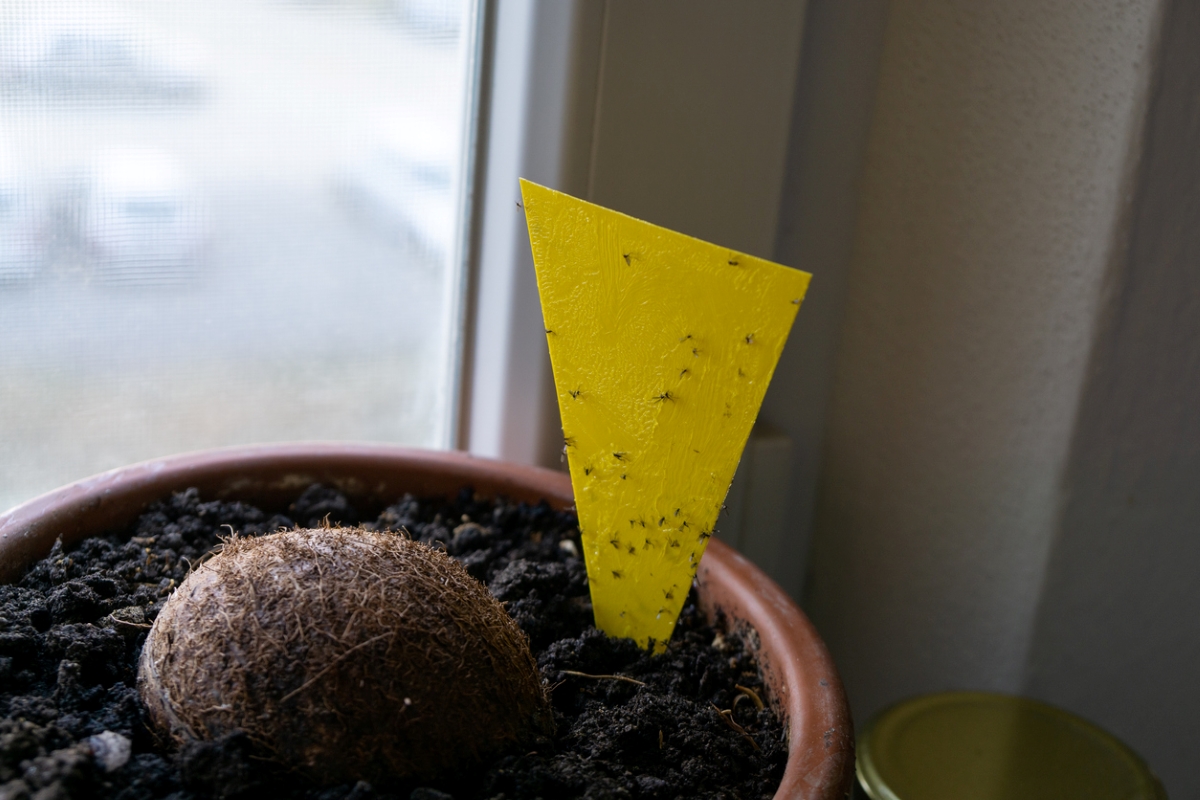
Sticky traps can be wildly effective at snagging winged pests before they swoop in on your garden plants, so why not recreate their magic with the materials you have on hand? Mix 1 quart corn syrup with 1 quart water, bring the solution to a boil on the stovetop, then brush it on brightly colored paper to attract the offending insects. Place the sticky strip of paper in your garden on the end of a popsicle stick or clothespin, or hang it from a string, to trap flying invaders.
RELATED: Don’t Kill These 17 Beneficial Insects in Your Garden
13. Wipe Out Wasps With Vinegar
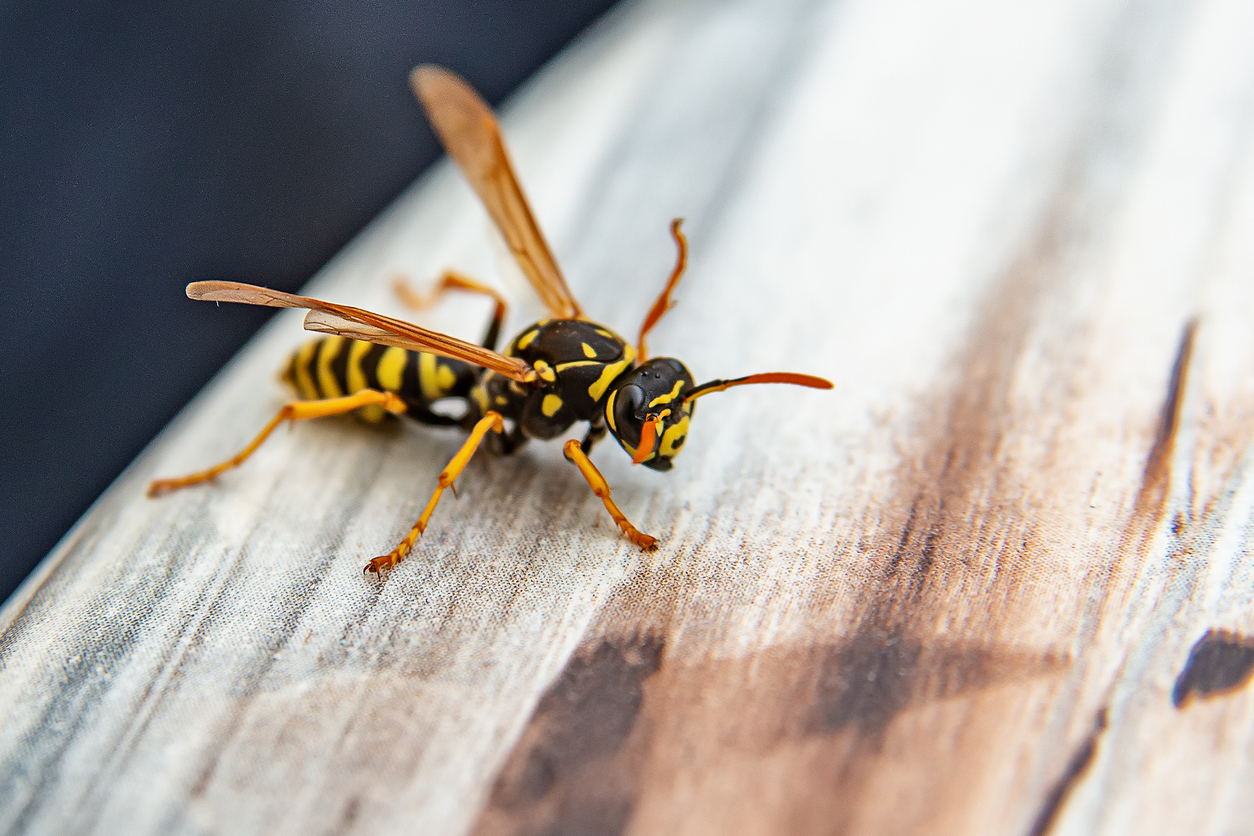
Vinegar is a common household ingredient that can be a powerful tool for dealing with wasps. First, locate the wasp’s nest, then combine 2 cups apple cider vinegar, 2 cups sugar, and 1 cup water in a spray bottle. Keeping a safe distance away, carefully approach the nest and thoroughly saturate it with the vinegar solution, focusing on the entry points and the nest itself. The vinegar’s strong odor and acidity will deter the wasps, eventually killing them. Note: Spray the nest during the evening, when wasps are less active, to avoid stings.
RELATED: How to Get Rid of Wasps and Prevent Future Nests
14. Get Rid of Cockroaches With a Mixture of Boric Acid and Sugar
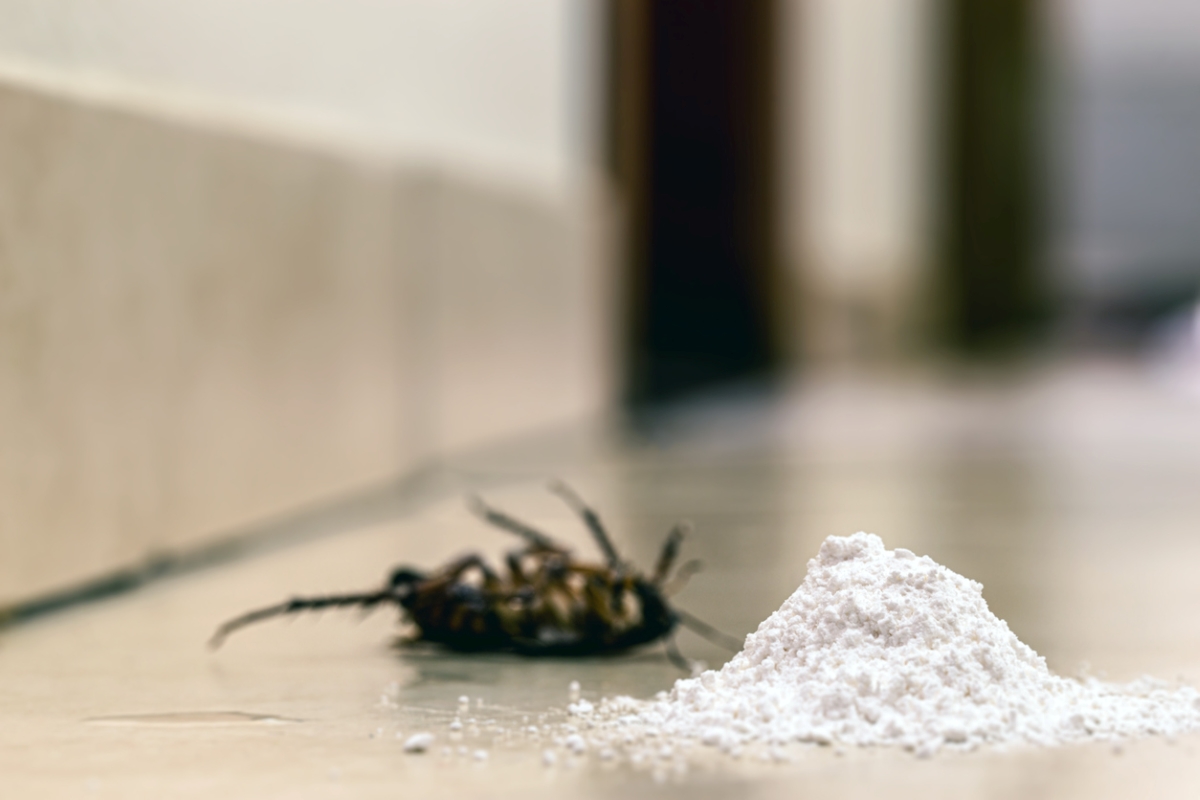
If you’re dealing with a cockroach infestation, try a DIY bait for removing them. Mix equal parts boric acid powder and powdered or granulated sugar. The sugar serves as an attractive bait, while the boric acid acts as an insecticide. Sprinkle the mixture in areas where cockroaches are frequently seen—think dark corners, under appliances, and along baseboards. The roaches will be attracted to the bait, consume it, and carry it back to their nests, where it will spread and kill other roaches. Note: Borax can be toxic if ingested in large quantities, so don’t use this in accessible places if you have young children or small animals.
RELATED: How to Get Rid of Cockroaches
15. Eliminate Bed Bugs With Diatomaceous Earth
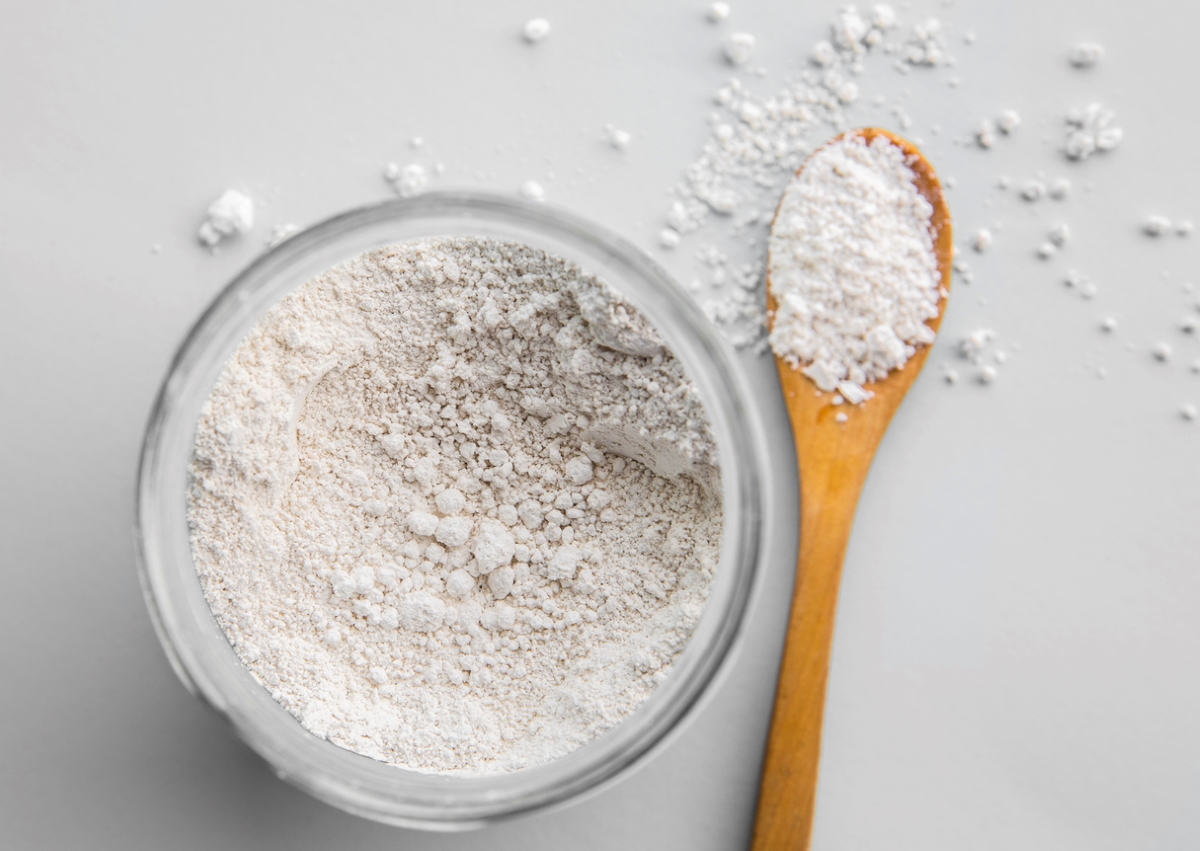
Diatomaceous earth can be an effective DIY bed bug treatment. Typically sold as a powder, it’s made from the fossilized remains of diatoms, a type of algae. Simply apply it to mattress seams, cracks and crevices, along baseboards, or under appliances to control bed bugs. Note: Be sure to use food-grade diatomaceous earth, as it is safe for humans and pets.


